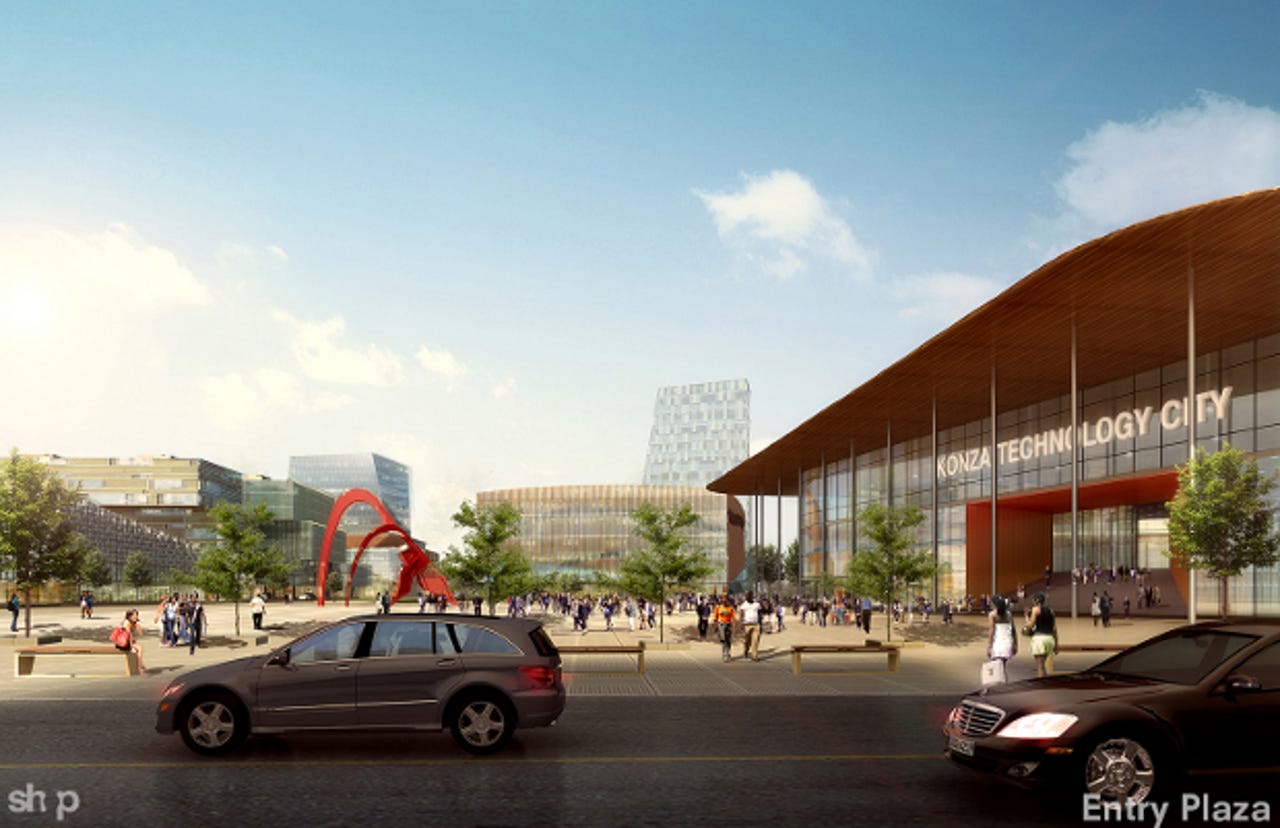How Africa's new tech cities could change the continent's IT landscape

Major African economies are planning to pump billions of dollars into tech cities and innovation hubs over the next few years as they race to establish themselves as leaders in the continent’s fast-growing IT market. But the investments may come to naught unless the right regulations, governance structures and skills are put in place to support them, analysts warn.
Kenya's previous president Mwai Kibaki earlier this year launched a $14.5bn project to build a new city intended to be 'Africa's Silicon Savannah'. Kibaki leaves office following the country's general election last week after serving his maximum two terms as president. The Konza Technology City development, about 60km outside Nairobi, will take 20 years to build and will be a hub for business process outsourcing (BPO), software development, and other high-tech businesses.
And the President of Ghana, John Mahama, last week announced plans to create an IT hub near the capital city of Accra over the next three years at a cost of around $5.2bn. The development is planned to have the tallest building in Africa, a 75-storey tower reaching a height of 270m. The project is a private-public partnership with Ghanaian IT and telecom group, RLG.
When completed, the projects will be similar to other African technology clusters such as Egypt's Smart Village Cairo and Ebene Cyber-City in Mauritius. Both Ghana and Kenya have ambitious goals for these new developments: the Kenyan government hopes that Konza City – part of a mammoth infrastructure and jobs creation programme called Vision 2030 – will create 20,000 IT jobs will be created by 2015 and Ghana is aiming for 50,000 jobs by 2016.

Africa has seen an influx of IT investors as well as more government support for tech entrepreneurs over the last three years, said Birgitta Cederstrom, head of best practices at Frost and Sullivan Africa. Kenya is the most mature country on the continent in this regard, and Konza City promises to cement its position as one of the main BPO and contact centre destinations in Africa, Cederstrom said.
Many African governments are eager to emulate the success of IT hubs such as Dubai's Internet City, said Mark Walker, a director at IDC Middle East, Africa and Turkey. Their success will depend on factors such as access to connectivity, the availability of an educated skills base, and the tax and regulatory environment.
The arrival of a range of new undersea cables off Africa's coastline and investments in national telecoms backbones have made it more viable for Kenya and Ghana to compete in the IT space, Walker added. But both countries must ensure that they have a predictable regulatory environment in place to make their hubs attractive to investors.
Schools, skills and infrastructure
Governments must foster skills and build roads, schools and other infrastructure so that it is desirable for IT and business professionals to work in these hubs – and then move aside to give the private sector room to grow, Walker said.
Dubai Internet City is the most successful such hub to date and an example African governments could learn from, he added. There is very little meddling by the government, strong leadership, and plenty of capital available for the development of new businesses.
Cederstrom said that tech hubs and innovation should be driven by both government and large private sector organisations rather than left to happen organically.
African countries may also need to temper their job creation expectations, Walker warned. Offshoring and software development will boost give GDPs a healthy boost by creating a number of relatively well-paid jobs, but they should not be seen as an answer for mass job creation.
Another challenge lies in the fact that such cities are nothing special any more, said Walker. There is fierce competition for investment from IT hubs around the world and those that will succeed will be those with specialisations around a key set of skills or technologies.
Nonetheless, there is plenty of promise for Africa as an innovation, application development and R&D hub of the future, Walker said. "There are some really good ideas coming out of Africa – short-circuit stuff that is relevant to other emerging markets," he said. There are innovations in mobile transactions and telecoms that are highly relevant to south-east Asia, for example.
The rise of the new tech cities could change sub Saharan Africa's IT landscape, which is currently dominated by South Africa. "South Africa has rested on its laurels for a long time," Walker said. "[It has been] too complacent, too unstructured, too unfocused, no strategy, and there are too many parties pulling in different directions."
South Africa has not just shot itself in the foot – it has shot itself in the head, he added. Its telecoms regulatory environment is a "millstone" and the strategy from its Department of Communications is "incoherent". "Kenya is making it happen with ventures like Konza City," said Walker. By contrast, South Africa's IT hubs in the Western Cape Province are driven by private sector investors and hindered rather than helped by central government.
Cederstrom said that South African provincial and national government is reluctant to invest in innovation because the return is perceived to not be immediate. But she says South Africa's private sector is also not investing enough in tech hubs, with multinationals from outside the country more able to see their value.